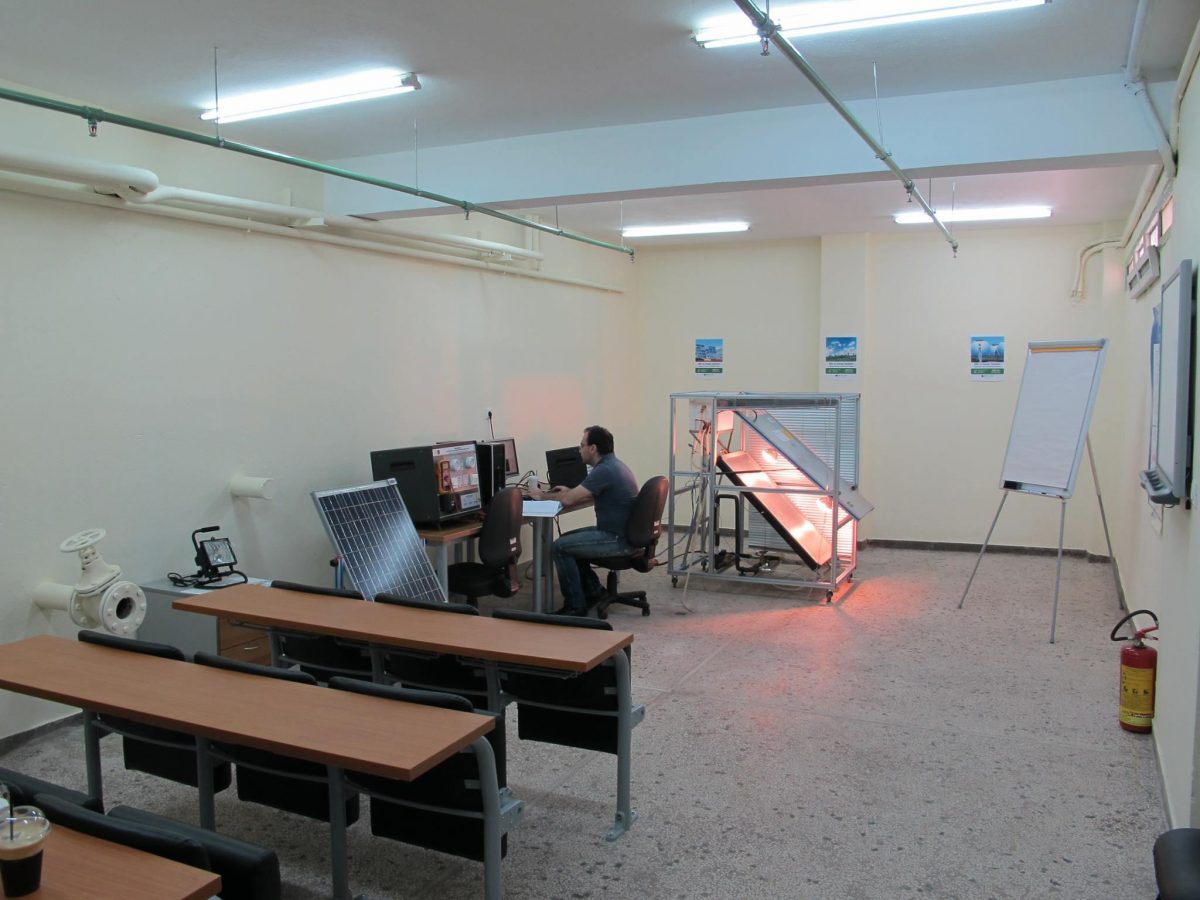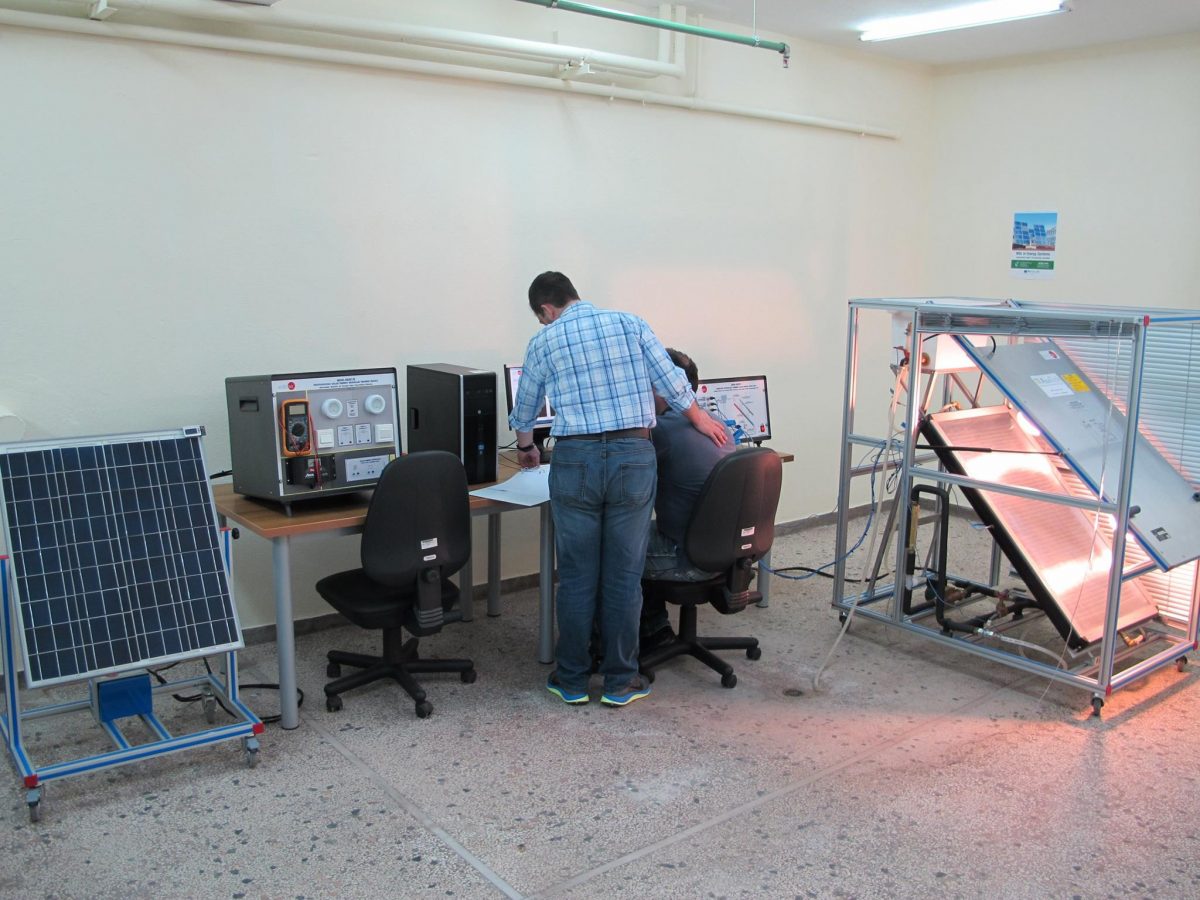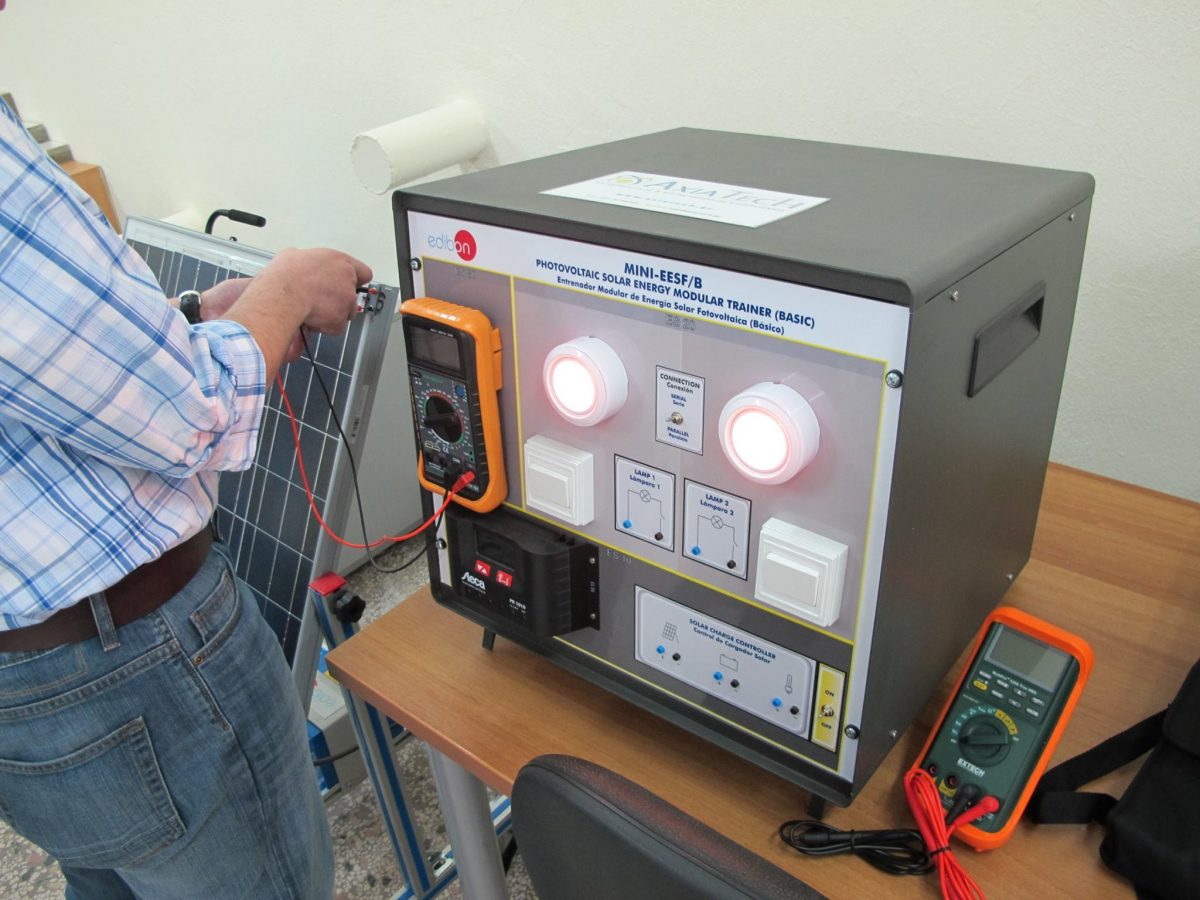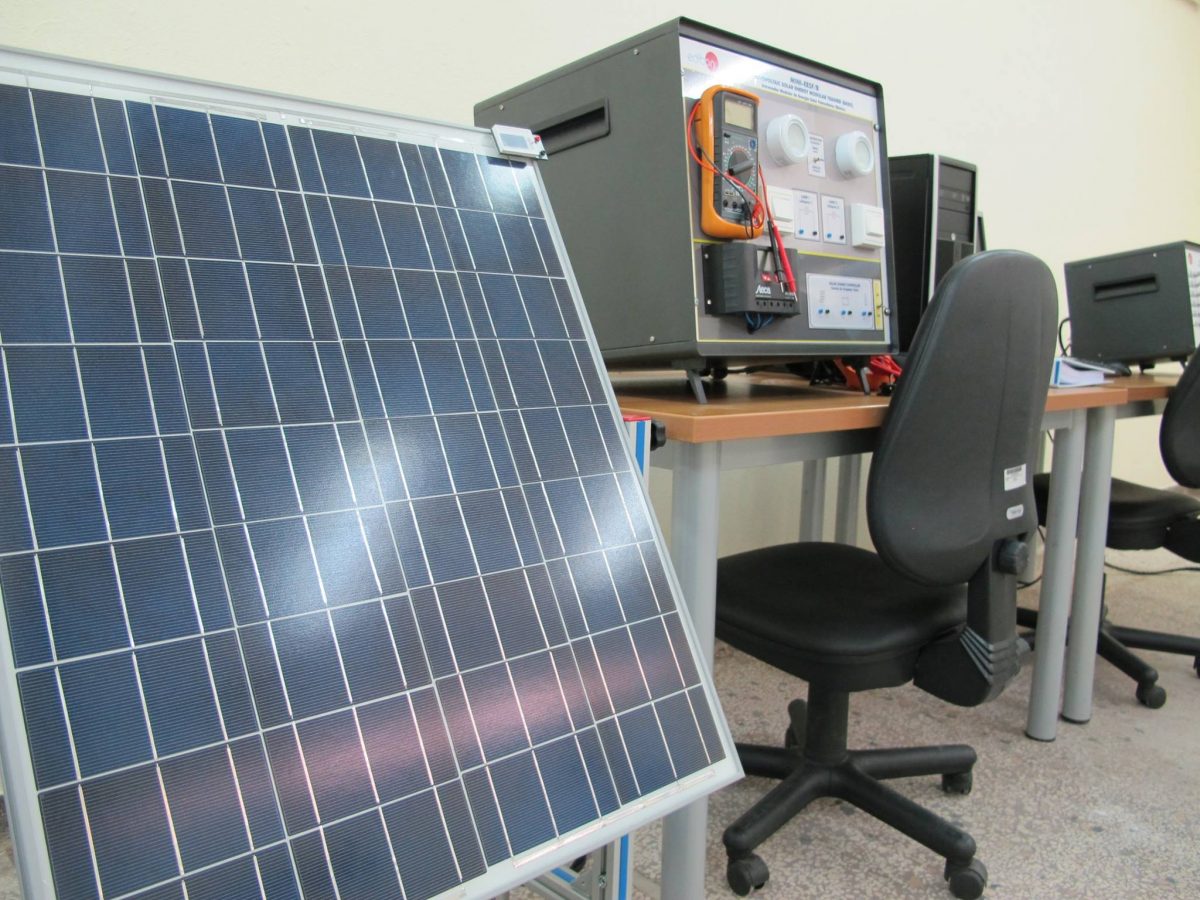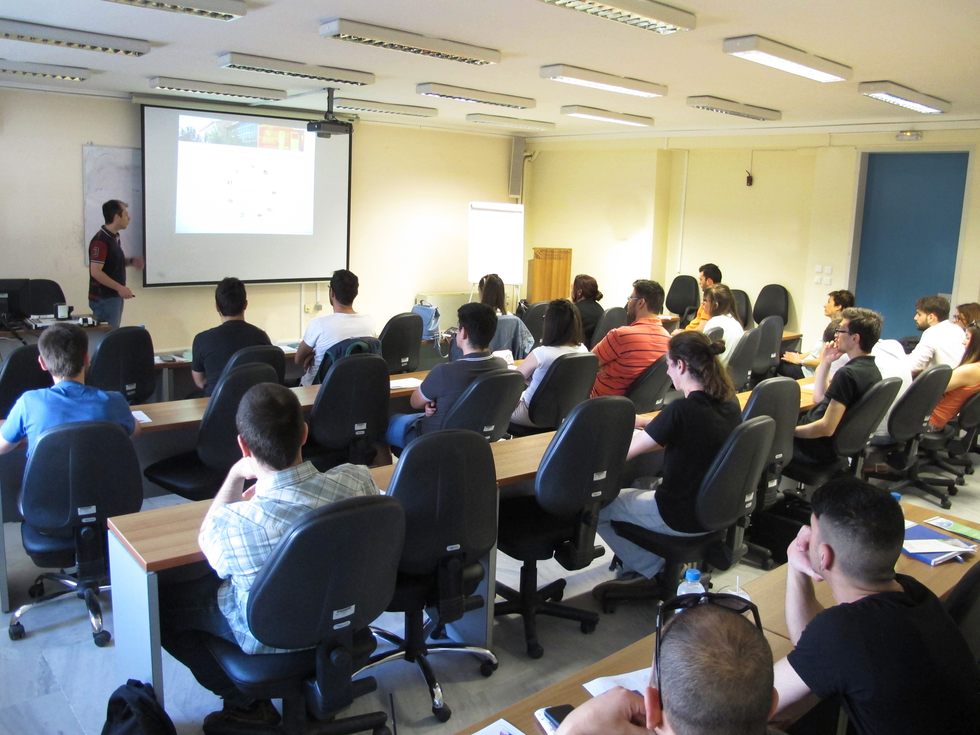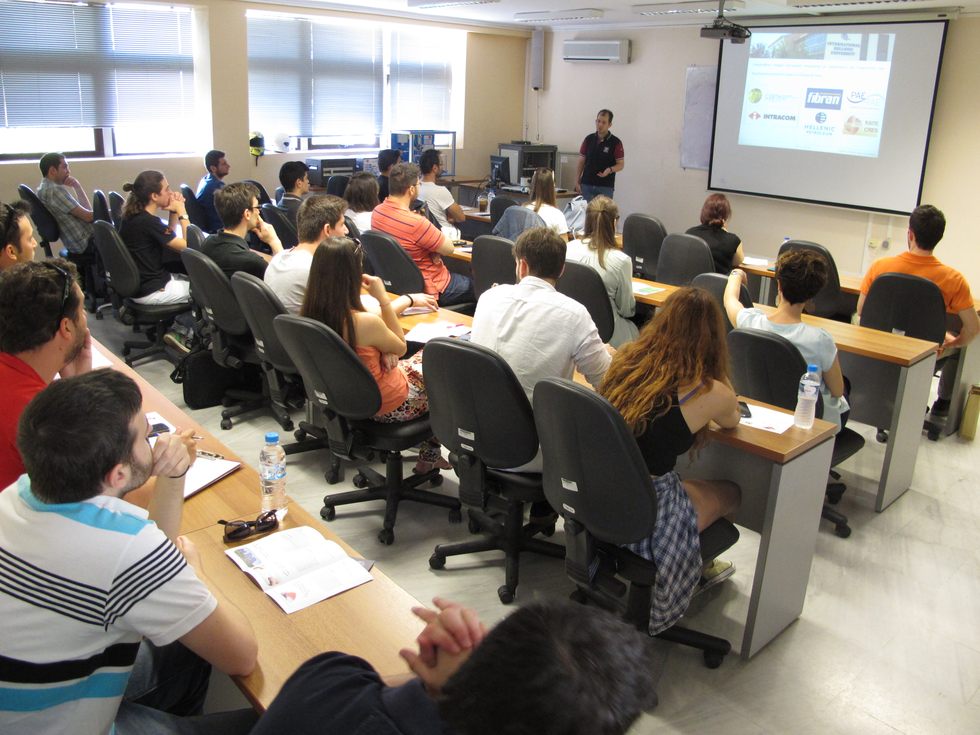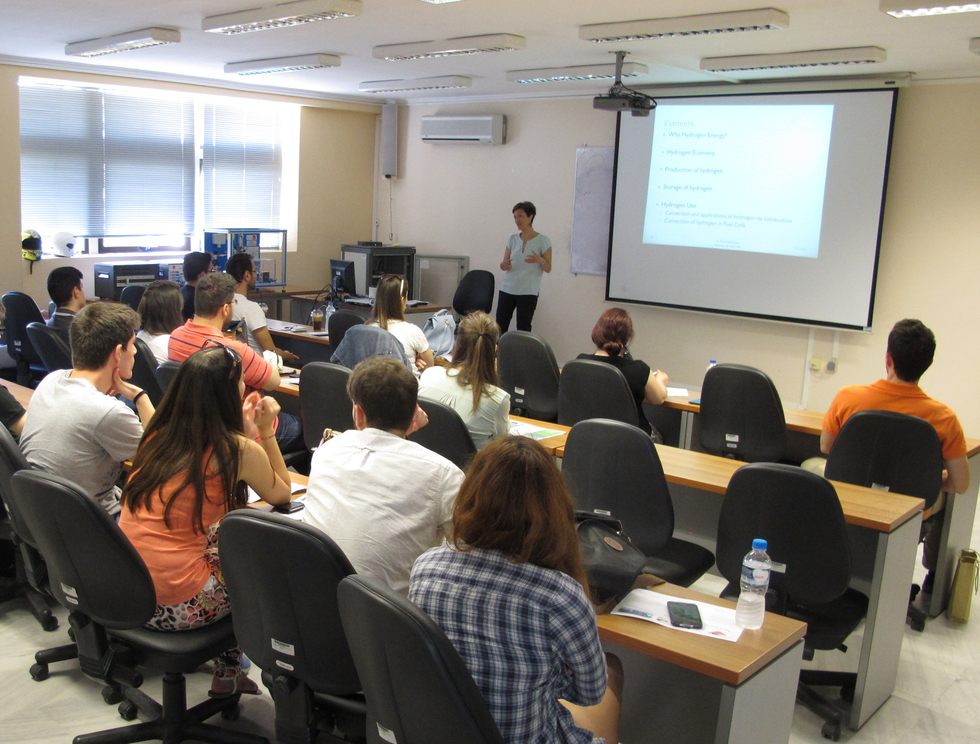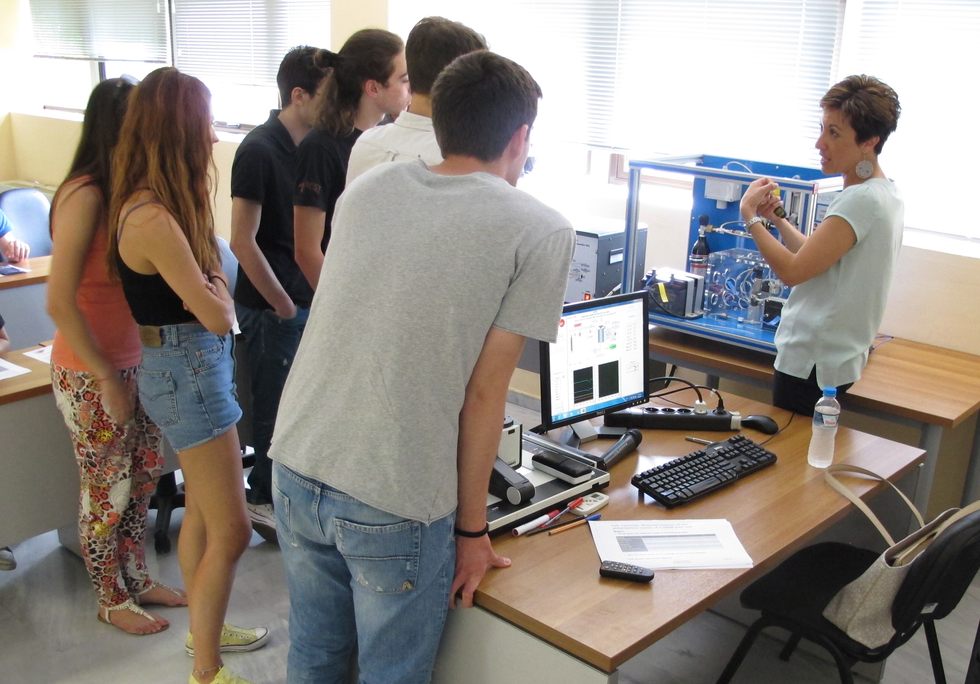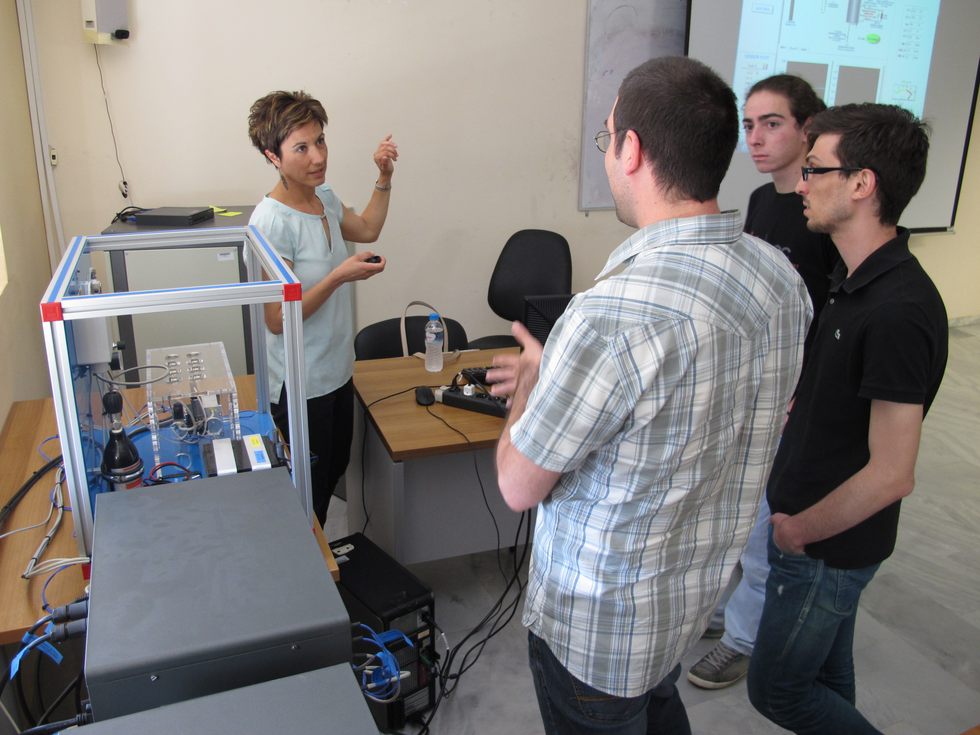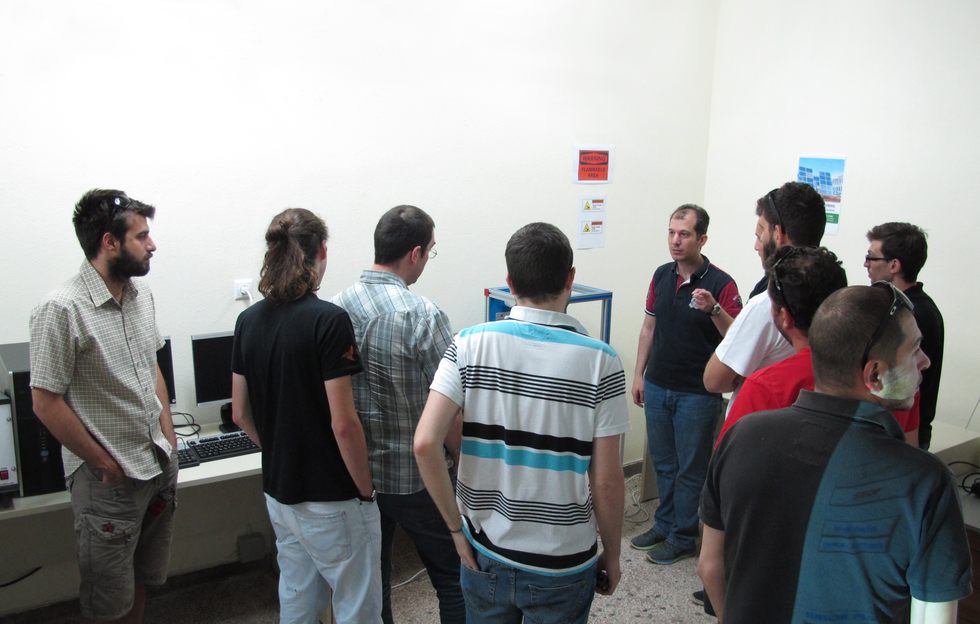Overview
The MSc in Environmental Management and Sustainability programme is designed to offer a thorough understanding of environmental and sustainability issues that can be applied in a policy or management context. In today’s highly competitive market, sustainability can become a critical profit centre for any organization through energy-saving processes, reduction of fuels consumption, optimisation of raw materials and other uses of resources, minimisation of waste management and air pollution abatement costs, to name a few.
Aims and Objectives
The aims and objectives of the programme are summarized as follows:
- A deep understanding of the current status and future trends in sustainable developmentand social corporate responsibility
- Application of environmental toolsand techniques to integrate sustainable practices (economical, environmental and social concerns)
- Adaptation to continuously increasing strictness of environmental legislation
- Understand the economic and social justifications for various environmental policyapproaches made at different levels
- Innovative pollutioncontrol practices
- Adaptation of strategic environmental assessmentapproaches in different contexts and different levels of decision making
- Evaluation of environmental policies in a cost benefit analysisconcept
The MSc in Environmental Management and Sustainability is designed for university graduates with the following academic backgrounds: Business/Economics, Engineering, Geotechnical as well as Natural Sciences. Leading academics from prestigious academic institutions from Greece and abroad, together with key players from environment and sustainability related organizations, teach in the programme.
The courses of the programme are taught exclusively in English. The academic staff comes from Universities in Greece and abroad.
Official Government Gazette:

Start date: October 2025
Application deadline: 30 September 2025, or until places are filled
Campus: Thermi, Thessaloniki
Duration/Mode: 18 months (full-time) or 30 months (part-time)/ weekdays evenings / available also in distance learning mode
Taught language: English
Entry requirements: An undergraduate degree from an accredited University
Language requirements: English language knowledge documented with a relevant certificate, corresponding at least to the State Certificate of Language Learning Level C1 or other certificate proving good knowledge of English. Holders of an undergraduate or postgraduate degree at a Foreign University in English are exempt from this obligation.
How to apply: Applications system
Fees: 3000€ (total)


Who can apply
To be considered for the programme, candidates are required to have:
- an undergraduate degree from a recognized University (University graduates of Business/Economics, Engineering, Geotechnical as well as Natural Sciences departments)
- English language knowledge documented with a relevant certificate, corresponding at least to the State Certificate of Language Learning Level C1 or other certificate proving good knowledge of English. Holders of an undergraduate or postgraduate degree at a Foreign University in English are exempt from this obligation.
Courses
During the first term, students are required to follow five mandatory core courses. During the second term, students are required to follow three mandatory core courses tailoring their programme further by two elective courses. Finally, in the third semester, work is dedicated exclusively to the Master’s dissertation. The dissertation provides an opportunity to apply theory and concepts gained during the year to a real-world problem.
During the second term students tailor their programme further by choosing elective courses. The choice of elective courses must sum up to 12 ECTS (2 courses).
| Course | Semester* | Type |
|---|---|---|
| Environmental and Energy Economics | 1 | Compulsory |
| Environmental Management Systems | 1 | Compulsory |
| Project Finance | 1 | Compulsory |
| Project Management | 1 | Compulsory |
| Quantitative Methods | 1 | Compulsory |
| Cost-Benefit Analysis | 2 | Compulsory |
| Energy and Climate Change | 2 | Compulsory |
| Environmental Impact Assessment | 2 | Compulsory |
| Energy and Environmental Law | 2 | Elective |
| Environmental and Energy Policy | 2 | Elective |
| Environmental Hazard Management | 2 | Elective |
| Financial Risk Management | 2 | Elective |
| Forecasting Methods | 2 | Elective |
| Life Cycle Assessment | 2 | Elective |
| Panel Data Econometrics | 2 | Elective |
| Smart Cities | 2 | Elective |
| Sustainable Production and Consumption | 2 | Elective |
* Full-time/Part-time students
AI tools in sustainability – PDF | reformed course outline
The Dissertation
During the third semester, students work on their Master’s Dissertation project, the thematic area of which is relevant to their programme of studies and their interests. The dissertation is the opportunity to apply theory and concepts learned in different courses to a real-world problem or research question. Students are supervised throughout their projects by a member of the academic faculty and the academic associates of the School. After submission of the dissertation, students present their projects to classmates and faculty at a special event.
Duration of studies
The MSc in Environmental Management and Sustainability (full-time) is a 18-month programme taught over three terms. Lectures mainly take place on weekday evenings. The MSc in Energy Systems programme is also available in part-time mode over 30 months for those who cannot commit to a full-time programme either for work or other reasons.
Study Guide
Handling Objections and Complaints

Students’ Complaints Procedure
Students who wish to make a complaint concerning the quality of an academic programme, any related service or member of the academic or administrative staff should first do so at the local level, by raising the issue with the individual, department or service provider directly involved. Issues of concern may often be resolved more quickly and effectively at this stage.
If a student decides to make a complaint, this will be taken seriously, and confidentiality will be respected. Investigations will be carried out thoroughly and the issue determined fairly by someone who is not directly involved in the complaint. It should be noted, however, that complaint resolution may not be possible without revealing the identity of the complainant to the subject of the complaint and anonymous complaints will not be investigated. Allegations which are found to be unsubstantiated or malicious will be dismissed.

Appeal Committee
Students are entitled to submit an appeal to an Appeal Committee, appointed by the Governing Board, with respect to any decision concerning their status at the University. A student submitting an appeal is invited to exercise his/her right to be heard, according to Article 6 of the Greek Administrative Procedure Code.
Appeal Committee examines any appeals against decisions of the Governing Board and/or the General Assembly of the School according to Article 24 of the Greek Administrative Code of Procedure.

Student Ombudsman
Students also have the right to appeal to the Student Ombudsman. There are three independent offices under the name “Student Ombudsman” at I.H.U: a) at the University Campus of Thessaloniki, b) at the University Campus of Serres, and c) at the University Campus of Kavala.
The Academic Faculty
Faculty Members
 |
Professor Maria Drakaki
Dean of the School +30 2310 807524 mdrakaki@ihu.gr |
 |
Professor Panayiotis Bozanis
Deputy Dean of the School +30 2310 807501 pbozanis@ihu.gr |
 |
Professor Eleni Heracleous
e.heracleous@ihu.edu.gr |
 |
Professor Christos Tjortjis
+30 2310 807576 c.tjortjis@ihu.edu.gr |
 |
Dr Vassilios Peristeras Associate Professor
+30 2310 807539 v.peristeras@ihu.edu.gr |
 |
Dr Dimitrios Tzetzis Associate Professor
+30 2310 807548 d.tzetzis@ihu.edu.gr |
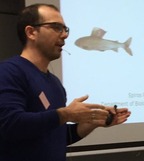 |
Dr Spiros Papakostas Assistant Professor
spapakostas@ihu.edu.gr |
Other Research and Teaching Personnel
 | Dr Christos Berberidis Research and Teaching Staff +30 2310 807534 c.berberidis@ihu.edu.gr |
 | Dr Dimitrios Baltatzis Research and Teaching Staff d.baltatzis@ihu.edu.gr |
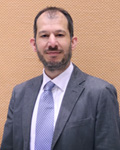 | Dr Georgios Martinopoulos Academic Associate +30 2310 807533 g.martinopoulos@ihu.edu.gr |
 | Dr Leonidas Akritidis Academic Associate |
 | Dr Dimitrios Karapiperis Academic Associate |
 | Dr Paraskevas Koukaras Academic Associate |
 | Dr Nikolaos Serketzis Academic Associate |
 | Dr Katerina Tzafilkou Academic Associate |
Collaborating Instructors
| Dr Nikolaos Apergis |
Professor
University of Piraeus
|
| Dr Constantinos Evagellinos |
Associate Professor
University of Aegean
|
| Dr Estelle Lucienne Anna Herlyn |
FOM University of Applied Sciences for Economy and Management
|
| Dr Dimitrios Kanellopoulos |
Public Power Company Renewables S.A. (PPC)
Natural Resources Evaluation & Certification Department Director and Solar Energy Department Acting Director
|
| Professor Athanasios G. Konstandopoulos |
Aristotle University of Thessaloniki
Centre for Research and Technology (CERTH) Director
|
| Professor Reinhard Madlener |
RWTH Aachen University, Germany
|
| Dr Isaac A. Meir |
Associate Professor
Ben-Gurion University of the Negev, Israel
|
| Professor Nikos Nomikos |
Professor of Shipping Risk Management, Director of MSc Shipping, Trade and Finance, Cass Business School
City University, London UK
|
| Dr Theodore C. Panagos |
Former Vice Chairman
Regulatory Authority for Energy, Greece
|
| Professor Agis Papadopoulos |
Aristotle University of Thessaloniki
|
| Dr Panos Pouliasis |
Senior Lecturer in Energy/Commodities and Finance, Cass Business School
City University, London UK
|
| Dr Dimitrios Psychoyios |
Associate Professor
University of Piraeus
|
| Professor Franz Josef Radermacher |
University of Ulm, IHU Honorary Doctorate
|
| Professor Matheos Santamouris |
National and Kapodistrian University of Athens
|
| Professor Eftichios S. Sartzetakis |
University of Macedonia
|
| Professor Rudolf Schilling |
Former Vice Chairman
Technical University of Munich, Germany
|
| Professor Jürgen Schmude |
Chair for “Economic Geography and Tourism Research” Department for Geography, Ludwig-Maximilians University (LMU), Munich
|
| Dr George Skevis |
Senior Researcher
Centre for Research and Technology Hellas (CERTH)
|
| Professor Marcus Wagner |
University of Augsburg, Chair for Management
|
| Professor Anastasios Xepapadeas |
Athens University of Economics and Business
|
| Dr Theodoros Zachariadis |
Associate Professor
Technical University of Cyprus, Cyprus
|
Labs
Students make extensive use of our recently set up Energy Lab. Facilities include a brand new computer-controlled Photovoltaic system, a computer-controlled Solar Thermal system, a computer controlled PEM Fuel cell, a computer controlled stirling engine, a 15kW organic Rankine cycle, a wind tunnel as well as an IR camera and environmental meters that students use during their studies and dissertation research.
Student Activities
The students and the alumni of the MSc in Environmental Management and Sustainability organised, with great success, the Students for Sustainability Conference on 2015 and 2016. ![]()
Fees & Financing
Fees
The programme fees for the MSc in Environmental Management and Sustainability for the 2024-25 academic year is 3000€*. The amount is payable in two instalments for the full time mode or in four instalments for the part time mode at the beginning of each semester. The fees are also eligible for financing through LAEK 0,45% – OAED programme.
*For the 2024-25 academic year a tuition fee reduction of 1000€ (from the initial amount of 4000€) is provided to all accepted students.
Deposits
If you have been accepted to a postgraduate programme, you will need to make a payment of the deposit of 500 Euros to secure your place. This amount will count towards the first instalment of your tuition fees. The deposit is non-refundable once you have commenced your studies at the IHU. Prior to that, a refund can be made but a 20% administrative fee will be retained. The deposit can be paid by bank transfer or bank draft. Credit card payments can be made through electronic banking (contact your Bank as handling fees may apply).
Scholarships
The School of Science & Technology offers a number of scholarships for the programmes it offers, covering a significant proportion of the fees. These scholarships are competitive. Award criteria include the quality of the first degree, the undergraduate grades of the candidate, his/her command of the English language and overall profile. Candidates for scholarships should include a separate letter with their application documents in which they request to be considered for a scholarship, stating the reasons why they think they qualify.
Programme announcement – Admissions
Next MSc in Environmental Management and Sustainability class starts in October 2025. Interested parties are invited to submit their application by 30 September 2025, or until places are filled, by following instructions at the application page.
How to apply: Applications system
Ideal Career path
The programme provides graduates with the real-world knowledge to stand out from the crowd and to achieve success in their chosen career. There is an ever-growing demand for highly specialized and effectively educated scientists to simultaneously tackle significant economic, environmental and social issues in the industry, the public sector and the society. After completing the MSc, a great selection of career options is available as there is a growing demand for sustainability professionals in a range of sectors. Environment and sustainability professionals can work in “green” industries (e.g. in the energy, technology, food, or construction sector), the public sector, certification bodies and/or NGOs. In addition, they will be motivated to reshape traditional strategies and policies within their organisations. Also, can found their own innovative start-ups or become social entrepreneurs. In addition to technical skills gained through study, our students benefit from the University’s excellent Careers Office in order to attain essential Soft Skills (e.g. communication skills, interview preparation, CV writing etc.) to better prepare for the job market.
Location
The MSc in Environmental Management and Sustainability takes place in the facilities of the School of Science & Technology of the University Center of International Programmes of Studies of the International Hellenic University in Thermi-Thessaloniki.
Contact
Postal address: School of Science & Technology Department of School of Science & Technology University Center of International Programmes of Studies 14th km Thessaloniki – Nea Moudania 570 01 Thermi, Thessaloniki, Greece Tel: +30 2310 807 529 Email: : infotech@ihu.edu.gr


